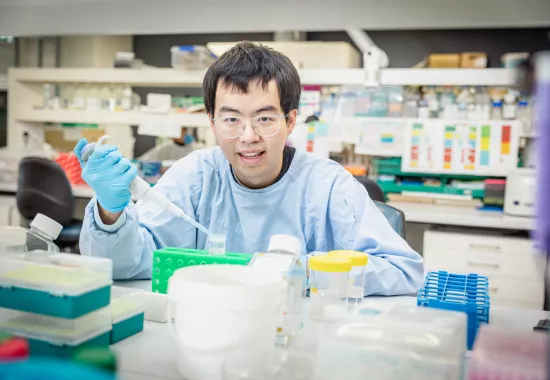We may soon have a convenient and painless approach to diagnose chronic kidney disease following research by the team from the Kolling Institute’s Renal Research Laboratory.
Chronic kidney disease is an emerging global health issue, currently affecting more than 11 per cent of Australians and 13 per cent of the worldwide population. By 2032, it’s estimated up to 125 million people will have the condition.
Chronic kidney disease is a progressive disease which eventually leads to kidney failure. It is fatal without dialysis or a kidney transplant.
Currently, a kidney biopsy is required to confirm a diagnosis, but this procedure brings inherent risks such as bleeding and pain. A non-invasive approach to diagnose chronic kidney disease is critically needed.
There are some blood and urine tests available which can detect advanced stages of the disease, but early detection through these means remains challenging.
Researchers from the Kolling Institute and the Australian Centre of Excellence for Nanoscale Biophotonics at the University of New South Wales have developed and continue to improve a urine test which provides accurate information for early diagnosis.
This novel test is based on assessing colour properties of kidney cells exfoliated from the kidney into urine. An individual’s disease status is determined by observing colour patterns with artificial intelligence-based analysis.
Encouragingly, this exciting new technology avoids the risk of an invasive biopsy procedure.
Head of the Kolling’s Renal Research Laboratory Professor Carol Pollock said this approach provides clear information about kidney pathology by examining kidney cells in urine through a “liquid biopsy”.
“Having the ability to diagnose chronic kidney disease with a simple urine test represents a major step forward,” she said.
“It means patients with chronic kidney disease or those who have a high risk of disease can receive timely management.”
Project co-lead Associate Professor Sonia Saad said the non-invasive test would also provide information on the effectiveness of drugs and other treatments over time.
“We look forward to applying our test for wider use within the nephrology setting, such as monitoring complications in patients who receive a kidney transplant.”
PhD student Dr Henry Wu welcomed the chance to apply artificial intelligence to their research.
“It’s been rewarding to help develop this important diagnostic test and progress the use of AI within the nephrology field.”
